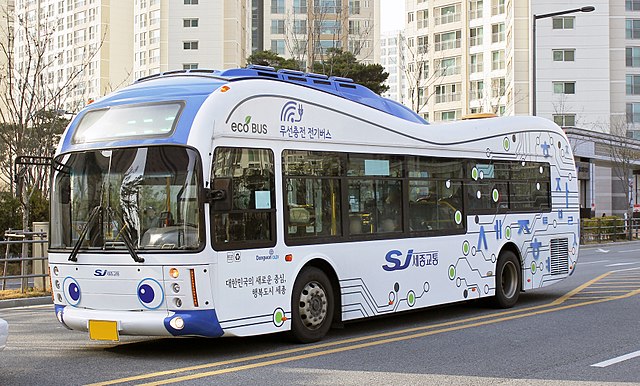On-Line Electric Vehicle or OLEV is an electric vehicle system developed by KAIST, the Korea Advanced Institute of Science and Technology, which charges electric vehicles wirelessly while moving using inductive charging. Segments composed of coils buried in the road transfer energy to a receiver or pickup that is mounted on the underside of the electric vehicle, which powers the vehicle and charges its battery.
OLEV bus in service
The Korea Advanced Institute of Science and Technology (KAIST) is a national research university located in Daedeok Innopolis, Daejeon, South Korea. KAIST was established by the Korean government in 1971 as the nation's first public, research-oriented science and engineering institution. KAIST is considered to be one of the most prestigious universities in the nation. KAIST has been internationally accredited in business education, and hosts the Secretariat of the Association of Asia-Pacific Business Schools (AAPBS). KAIST has 10,504 full-time students and 1,342 faculty researchers and had a total budget of US$765 million in 2013, of which US$459 million was from research contracts.
Korean representatives and Frederick E. Terman discuss the establishment of the institute.
A statue of Jang Young Sil, a Korean scientist, in front of science library, Daejeon campus
A view of the main campus
KAIST's sport complex at night





